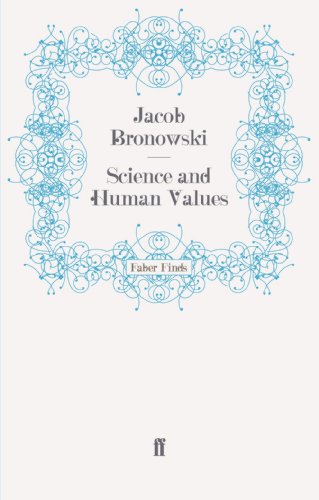Mathematicians Do Math for Its Own Sake
4- As an example, consider the practice of mathematics. Mathematics is in the first place a language in which we discuss those parts of the real world which can be described by numbers or by similar relations of order. But with the workaday business of translating the facts into this language there naturally goes, in those who are good at it, a pleasure in the activity itself. They find the language richer than its bare content; what is translated comes to mean less to them than the logic and the style of saying it; and from these overtones grows mathematics as a literature in its own right. Mathe¬ matics in this sense, pure mathematics, is a form of poetry, which has the same relation to the prose of practical mathematics as poetry has to prose in any other language. This element of poetry, the delight in exploring the medium for its own sake, is an essential ingredient in the creative process.
Notes:
They work the art as if it were poetry, much of it without practical application, but for the beauty of mathematics.
Folksonomies: ionian enchantment mathematics art two cultures discovery
Taxonomies:
/science/mathematics (0.550220)
/art and entertainment/books and literature/poetry (0.449625)
/business and industrial (0.313507)
Keywords:
practical application (0.983191 (negative:-0.220128)), bare content (0.966874 (neutral:0.000000)), essential ingredient (0.962823 (positive:0.832912)), real world (0.959425 (neutral:0.000000)), similar relations (0.957010 (neutral:0.000000)), mathematics (0.956773 (positive:0.089236)), workaday business (0.948385 (positive:0.471323)), creative process (0.919980 (positive:0.832912)), Mathe¬ matics (0.918607 (neutral:0.000000)), pure mathematics (0.896466 (neutral:0.000000)), practical mathematics (0.866508 (negative:-0.228848)), language (0.796445 (positive:0.242475)), sake (0.783990 (positive:0.657920)), poetry (0.767606 (positive:0.114372)), overtones (0.628654 (neutral:0.000000)), Mathematicians (0.623899 (neutral:0.000000)), prose (0.611046 (negative:-0.228848)), delight (0.610258 (positive:0.657920)), example (0.595739 (neutral:0.000000)), pleasure (0.592609 (positive:0.653775)), art (0.589848 (neutral:0.000000)), beauty (0.589064 (positive:0.318084)), practice (0.585603 (neutral:0.000000)), element (0.585042 (neutral:0.000000)), sense (0.584691 (neutral:0.000000)), place (0.581343 (neutral:0.000000)), parts (0.581003 (neutral:0.000000)), numbers (0.580578 (neutral:0.000000)), order (0.580323 (neutral:0.000000)), facts (0.578723 (positive:0.471323))
Concepts:
Mathematics (0.983744): dbpedia | freebase | opencyc
Translation (0.598736): dbpedia | freebase | opencyc
Language (0.534482): dbpedia | freebase | opencyc
Logic (0.500959): dbpedia | freebase | opencyc
Axiom (0.489149): dbpedia | freebase
Literature (0.486397): dbpedia | freebase
Function (0.464762): dbpedia | freebase | yago
Poetry (0.461356): dbpedia | freebase | opencyc

Triples
 Knowledge for its Own Sake
Knowledge for its Own Sake
What Makes a Person Predisposed To Science > Example/Illustration > Mathematicians Do Math for Its Own SakeSuccessful scientists do their work for its own sake, enjoying the beauty of ideas. Mathematicians work in a type of poetry of ideas, a literature of numbers.





